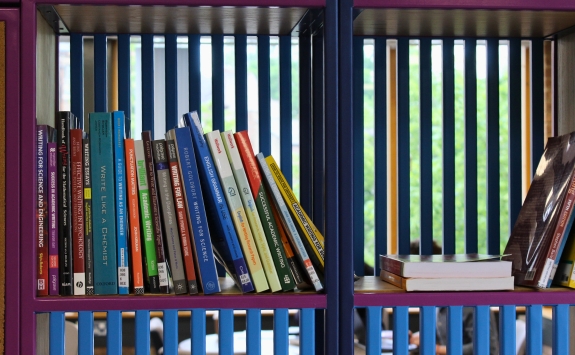Starting your A-Levels can feel like a massive step from GCSE and not knowing what to read can often feel daunting, especially if you aren’t used to reading long essays or reports. I have found that understanding what reading to do and developing my reading style had massive positive effects on my time management, homework and exam results. In this blog post, I will be sharing some tips and advice that I’ve followed that helped me.
What is additional reading?
Additional reading can vary between subjects as in my experience studying STEM A-Levels, it can be as simple as reading about scientific breakthroughs from media outlets or finding websites that have more information about a current classroom topic. I found reading around the course content can help with understanding and memory retention.

Break it down
When I read any book or report, I find it much easier to process the information if I break it down into sections. By having defined sections, I can better understand the points being made. I start each reading with a set an objective of what I want to get out of the essay or report. I have often found that I either need facts or specific trends to support an argument, general information around the subject or the ability to analyse contrasting opinions. ‘Control F’ and then typing a key word will allow you to see every time the key word is mentioned which can often save time when reading overviews of broad subject areas.
Read it twice
One of the most repeated phrases often before exams is ‘read it twice’, and I have found this advice to be extremely helpful when doing additional reading. Going over a book or report twice can allow me to highlight and focus on parts that on first reading I didn’t take much time over. This helps me identify the more facts and points of view to use for an exam question or even for further reading. ‘Read it twice’ is also essential for exam questions as in my STEM A-Levels I found that understanding the question properly helped narrow down the multiple-choice options and indicated which formulae to use.

Make organised notes
I found at A-Level that making notes from the different reading I did was helpful in improving my understanding of the course content. I would organise the notes I made alongside any class notes and match them to specification points. This was so I didn’t forget the material I’d read, but also so I could revise it separately to improve longer answer questions.
Exam Answers
Reading over exam answers and understanding how the marks were awarded was a technique I learnt at A-Level. It helped me look at model answers and pick out key phrases and examples to use in my own work. I would also use the same technique to read over my own answers to help improve my grade.
EPQ
If you’re doing an EPQ, you might use sources such as Google Scholar or Pub Med to read articles and reports. I used additional reading when I wrote my EPQ to help me go into greater detail about the subject and find different viewpoints or more detailed explanations of a process. If I am reading a scientific report, I will start with the abstract and conclusion and note any graphs or tables that are included to judge if the additional information is relevant. One part of the EPQ mark scheme is having the ability to reference. I found this a completely new concept and so to make sure that I referenced properly I would link the facts and statistics I used to the specific text they were from and note the page numbers.
Overall, developing reading skills and habits can be tough but also one of the most rewarding skills to have throughout school and in university. It is important to remember that everyone will be at different stages of reading, but hopefully the tips and information I have shared will help you develop this skill. Remember your teachers will also be happy to help and be able to point you in the right direction for subject specific additional reading.
Written by Tom, a BSc Biology student



